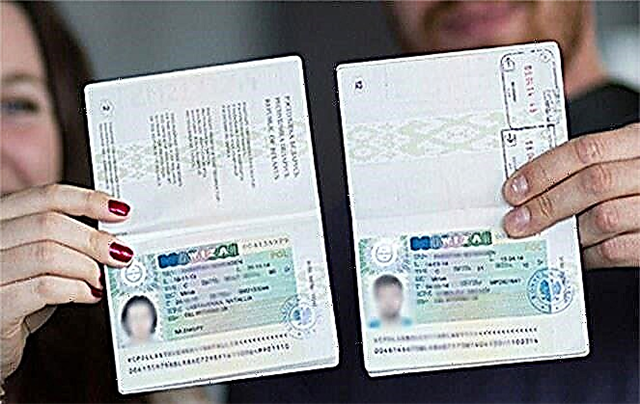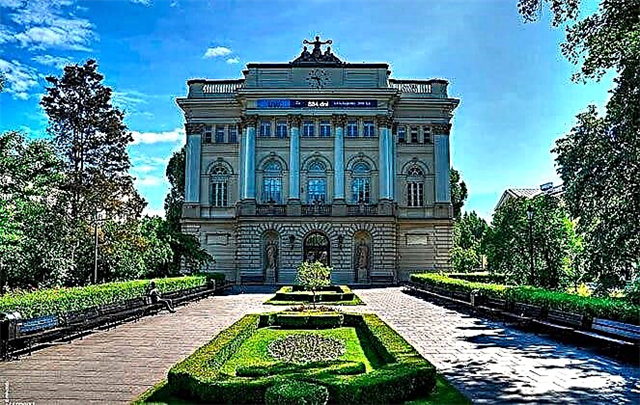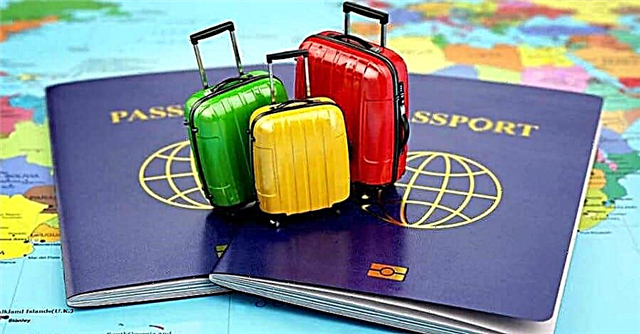Any Russian has the right to obtain a passport of another country, while retaining domestic citizenship. The only limitation can be the legislation of another country - not all states of the world allow second or dual citizenship.
Differences between dual citizenship and the second
Both cases are varieties of multiple citizenship. It allows a person to be a citizen or subject of two different states, which imposes obligations on him in relation to them, but also allows him to realize the rights of a citizen in both countries.
People with dual or multiple citizenships are called bipatrids, which literally means "a person with two homelands." The same term applies to those who hold three or more passports. In this case, their number does not matter.
Second citizenship - a citizen has a second passport, which does not cancel all the obligations of the holder in relation to his country. In this case, each state considers a person as its full-fledged citizen and does not take into account the presence of a second passport.
Double citizenship - a special case of the multiple, when an agreement on the mutual recognition of citizenship is in effect between states. In such a situation, human rights are protected by both countries on an equal basis. The obligations of a person are also equal, however, the existence of an agreement between countries allows a person to evenly distribute them.
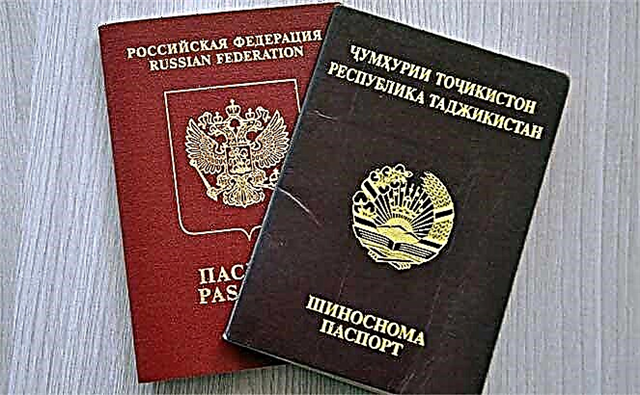
For example, a person with dual citizenship is serving military service in one country. Then, in another state, he will not be drafted into the army, since the country recognizes the duty of the person in relation to the other party to the agreement.
Countries with dual citizenship with Russia
Dual citizenship is not widespread in the world. Such a legal institution recognizes several dozen states, often not the largest and most significant ones. For example, the USA, China, Japan, France, Germany reject such an opportunity for their citizens.
Dual citizenship is allowed to Russians - this right is guaranteed by Art. 62 of the Constitution of the Russian Federation. However, the text of the article stipulates that it is allowed in the event of an international agreement on the recognition of dual citizenship. Such agreements were signed by Russia only with Turkmenistan and Tajikistan. In 2015, the agreement between the Russian Federation and Turkmenistan was canceled at the request of the Turkmen side.
At the moment, the agreement is valid exclusively with Tajikistan. Persons holding passports of this country and Russia have the right to determine for themselves in which country they should bear the tax burden, serve out military service, etc.
Expansion of the list of states with which such agreements are in force is not yet planned.
Despite the fact that formally Russia and Belarus form a Union State, no agreements have been concluded between them regarding the mutual recognition of each other's citizenship.
You May Also Like
With which countries it is possible to obtain a second citizenship
The second citizenship is allowed to Russians, since such a right is also justified by Art. 62 of the Constitution of the Russian Federation and the Law "On Citizenship of the Russian Federation". However, these regulatory legal acts state that for the state bodies of the Russian Federation, such persons will continue to be considered exclusively as Russians - the second passport will not change anything from the point of view of state bodies.
There is a separate restriction for civil servants: Persons entering the civil service must not have citizenship of any country other than Russia. So in this regard, a separate restriction is imposed on them.
There are many countries in the world that are not ready to give their passports to foreigners retaining their citizenship or to recognize another passport from their subjects. For example, Germany prohibits its citizens from obtaining or having a second passport. The only exception can be repatriates, that is, an ethnic German or a Jew returning to Germany on a permanent basis can become a bipatride.
Also, many states have separate restrictions for bipatrides. For example, Argentina recognizes a second citizenship exclusively in relation to nationals of Italy and Spain. So the Russians who receive the passport of this country must renounce the citizenship of the Russian Federation.
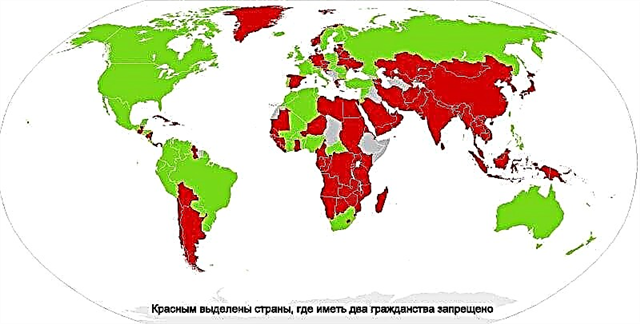
Europe
In Europe, the institution of bipatrides is most developed - there are most states here that recognize the right of their subjects to have a passport of another country. Some of them set restrictions on the ethnic or territorial affiliation of applicants. For example, only ethnic Latvians or persons holding EU passports are allowed to have a second citizenship in Latvia.
The states of Europe, the registration of citizenship of which will allow a Russian to keep a domestic passport, include:
- Great Britain;
- Spain;
- Portugal;
- France;
- Italy;
- Belgium;
- Hungary (investment program only);
- Cyprus (under the investment program);
- Luxembourg;
- Macedonia;
- Albania;
- Greece;
- Poland;
- Romania;
- Serbian Republic;
- Bulgaria;
- Czech Republic;
- Sweden;
- Switzerland;
- Finland.
America
Outside Europe, South and North America are distinguished by a developed institution of bipatrides. This loyalty to foreign passports is tied to the region's emigrant past. The list of states favoring bipatrides is quite large here.

These include:
You May Also Like
- Canada;
- United States;
- Mexico;
- Brazil;
- Bolivia;
- Colombia;
- Costa Rica;
- Venezuela;
- Paraguay;
- Uruguay;
- Ecuador;
- Jamaica.
Africa
In Africa, the list of such countries is much shorter. In addition, this continent rarely attracts migrants and potential bipatrides.
You can get the required passport and not lose your domestic document in:
- Angola;
- Republic of South Africa;
- Zambia;
- Morocco;
- Libya;
- Tunisia;
- Ghana;
- Kenya.
Asia
The institution of bipatrides was even less widespread in Asia. At the same time, the level of economic development and political freedoms in the country does not matter - the rules regarding bipatrides are usually very strict here.
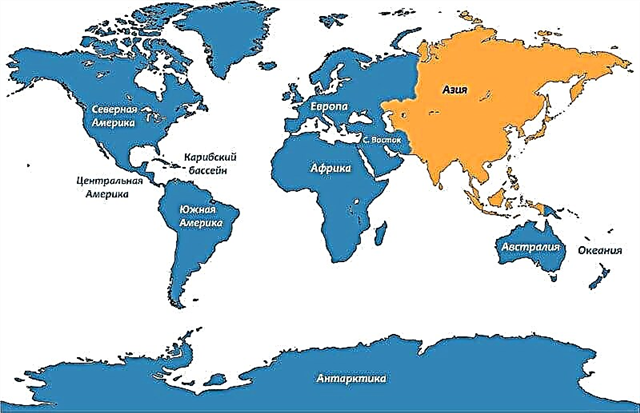
The exceptions that recognize a second passport for Russians are:
- Lebanon;
- Bangladesh;
- Jordan;
- Palestine;
- Sri Lanka.
The situation with Israel is quite difficult. Anyone who is Jewish by birth can acquire Israeli citizenship by keeping a different passport. Persons with a different ethnicity must have lived here for at least 3 years and have their passport of their homeland canceled in order to obtain an Israeli passport.
Some Asian states conditionally allow the possibility of providing their own passport, but in practice it is very difficult for Russians to get it:
- Pakistan limits the list of states whose passports it accepts;
- In Syria, local citizenship is only available to women who have married Syrians and have lived in Syria for 10 years;
- In the Philippines, it is very difficult for foreigners to issue a local passport, although Filipinos themselves may have two passports.
Oceania
The countries of Oceania are quite loyal to bipatrides. The reason for this also lies in the region's emigrant past.
Accept second passports:
- Australia;
- New Zealand;
- Samoa.
Some of the island states of Oceania also belong to the same list: Vanuatu, Tuvalu, Palau, etc.
Small countries
Also noteworthy are small states around the world that recognize second citizenship and easily grant it to Russians.Often these are dwarf states or small islands, whose economy is based on tourism or attracting wealthy foreigners. They often issue a passport for investments in the economy, for example, the purchase of real estate for a certain amount.

These include the following states:
- Malta;
- Maldives;
- Cape Verde;
- Mauritius;
- Saint Kitts and Nevis;
- Grenada;
- Dominican Republic;
- Dominica;
- Saint Lucia, etc.
Responsibility for second citizenship
There is no punishment for Russians for having a passport of another state. As already mentioned, the Constitution of the Russian Federation allows Russians to have a second or dual citizenship, provided that this does not violate domestic regulations and interstate agreements.
Since 2014, amendments have been made to the Law "On Citizenship of the Russian Federation". From that time on, any citizen of the Russian Federation is obliged to notify the Ministry of Internal Affairs bodies responsible for migration registration of the presence of a second citizenship (nationality). For residents of the Republic of Crimea and Sevastopol, this obligation has been in effect since 2016. Deadline for notification - 60 days from the moment the second passport was issued.
Citizens of Tajikistan, as well as Russians who do not live in the Russian Federation, are recognized as exceptions. These categories of persons are not obliged to submit information about their possession of passports of other states to the Main Directorate of Internal Affairs of the Ministry of Internal Affairs of the Russian Federation.
In the event of a violation of the law, a Russian is liable in an administrative or criminal order. Administrative measures are applied in the event that a person has not timely notified the authority or provided data not in full. The punishment is relatively benign - fine from 500 to 1 thousand rubles. (Article 19.8.3 of the Code of Administrative Offenses of the Russian Federation).
More serious consequences are incurred by the criminal prosecution of persons who did not notify the Ministry of Internal Affairs of the presence of a second passport. It can be applied in the case of knowingly concealing the second citizenship.
Sanctions for such an offense:
- Fine up to 200 thousand rubles;
- Recovery in the amount of annual earnings;
- Up to 400 h. compulsory work.
Multiple citizenship greatly enhances opportunities and human rights. In the modern world, where borders are becoming more conditional, the presence of a second, third, etc. citizenship is becoming a common practice. Russia also supports this initiative. But not all countries of the world adhere to such a legal institution. About half of the world's states reject the institutions of second and dual citizenship.

